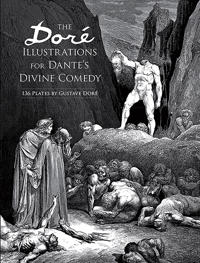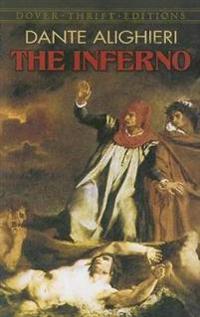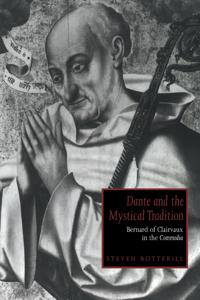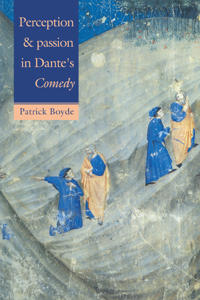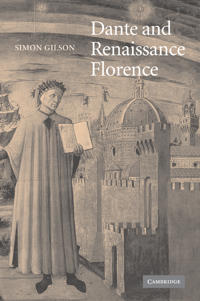Discrete Signals and Inverse Problems: An introduction for engineers and sc (Inbunden)
avJ. C. Santamarina, Dante Fratta
ISBN: 9780470021873 - UTGIVEN: 2005-08-31Discrete Signals and Inverse Problems: An Introduction for Engineers and Sc (Övrig)
avJ. C. Santamarina, Dante Fratta
ISBN: 9780470021897 - UTGIVEN: 2006-06-30BlackBerry PearlTM For Dummies (Häftad)
avRobert Kao, Dante Sarigumba, Marie-claude Kao, Sarigumba
ISBN: 9780470128930 - UTGIVEN: 2007-02-28Minnesota Symposia on Child Psychology: Meeting the Challenge of Translatio (Inbunden)
avDante Cicchetti, Megan R. Gunnar
ISBN: 9780470345139 - UTGIVEN: 2009-02-28Unified Communications For Dummies (Häftad)
avDante Sarigumba, Robert Kao
ISBN: 9780470401446 - UTGIVEN: 2010-01-31Minnesota Symposia on Child Psychology: The Origins and Organization of Ada (Häftad)
avDante Cicchetti, Glenn I. Roisman
ISBN: 9780470422731 - UTGIVEN: 2011-06-30The Origins and Organization of Adaptation and Maladaptation provides scholars, students, and practitioners with access to the newest work of top tier scientists in psychology. This volume addresses issues relevant to the impact of attachment on romantic relationships in later adulthood.[...]
BlackBerry Bold For Dummies (Häftad)
avDante Sarigumba
ISBN: 9780470525401 - UTGIVEN: 2009-10-31"BlackBerry Bold For Dummies" focuses solely on the Bold model. This book is a practical user's guide to the BlackBerry Bold, covering: - Learning to use the QWERTY Keyboard
- Getting organized with your BlackBerry Bold
- Thumbing and navigating the Bold
- Getting online with your Bold<[...]BlackBerry All-in-One For Dummies (Häftad)
avDante Sarigumba, Robert Kao, William Petz, Timo Calabro
ISBN: 9780470531204 - UTGIVEN: 2010-10-31BlackBerry Storm For Dummies, 2nd Edition (Häftad)
avDante Sarigumba, Robert Kao
ISBN: 9780470565315 - UTGIVEN: 2010-01-31BlackBerry Curve For Dummies (Häftad)
avRobert Kao, Dante Sarigumba
ISBN: 9780470587447 - UTGIVEN: 2009-12-31Dante's Deadly Sins: Moral Philosophy In Hell (Häftad)
avRaymond Angelo Belliotti
ISBN: 9780470671054 - UTGIVEN: 2011-11-30"Dante's Deadly Sins" is a unique study of the moral philosophy behind Dante's master work that considers the "Commedia" as he intended, namely, as a practical guide to moral betterment. Focusing on "Inferno" and "Purgatorio," Belliotti examines the puzzles and paradoxes of Dante's moral assumptions[...]
BlackBerry Pearl 3G For Dummies (Häftad)
avRobert Kao, Dante Sarigumba
ISBN: 9780470964729 - UTGIVEN: 2010-12-31"BlackBerry Pearl 3G For Dummies" focuses solely on this new and exciting product. Written by Robert Kao and Dante Sarigumba, authors of "BlackBerry For Dummies," this book is a practical user's guide to the Pearl 3G device, covering the following topics: - Getting organized with your Pearl 3G - E[...]
Developmental Psychopathology, 2nd Edition, Three Volume Set , 2nd Edition (Inbunden)
avEditor:Dante Cicchetti, Donald J. Cohen
ISBN: 9780471237358 - UTGIVEN: 2006-01-31Developmental Psychopathology, 2nd Edition, Volume 1, Theory and Method, 2n (Inbunden)
avEditor:Dante Cicchetti, Donald J. Cohen
ISBN: 9780471237365 - UTGIVEN: 2006-03-31Developmental Psychopathology, 2nd Edition, Volume 2, Developmental Neurosc (Inbunden)
avEditor:Dante Cicchetti, Donald J. Cohen
ISBN: 9780471237372 - UTGIVEN: 2006-02-28Developmental Psychopathology, 2nd Edition, Volume 3, Risk, Disorder, and A (Inbunden)
avEditor:Dante Cicchetti, Donald J. Cohen
ISBN: 9780471237389 - UTGIVEN: 2006-03-31Developmental Psychopathology, 2 Volume Set (Inbunden)
avDante Cicchetti
ISBN: 9780471532576 - UTGIVEN: 1995-05-31Dore's Illustrations for Dante's "Divine Comedy" (Häftad)
avGustave Dore
ISBN: 9780486232317 - UTGIVEN: 197607135 gripping scenes; from Inferno, Purgatory, Paradise; fantastic tortures, infernal landscapes, celestial wonders, more.
[...]The Inferno (Pocket)
avHenry Wadsworth Longfellow, Dante Alighieri, Henry Wadsworth (TRN) Longfellow
ISBN: 9780486442884 - UTGIVEN: 2005-08The first of the three canticles in "La divina commedia (The Divine Comedy), this fourteenth-century allegorical poem begins Dante''s imaginary journey from Hell to Purgatory to Paradise with his sojourn among the damned. His encounters with historical and mythological creatures--each symbolic of a [...]
Dante Alighieri (Pocket)
avPaget Toynbee, Robert (INT) Hollander, Paget Toynbee
ISBN: 9780486443409 - UTGIVEN: 2005-08One of the most frequently cited texts on the great Florentine poet's life and writings, this invaluable study is the work of an influential Dante scholar. Paget Toynbee's meticulous attention to detail and clear analysis offer a concise account of Dante's world, opening with historical background o[...]
Dante And the Mystical Tradition
ISBN: 9780521021722 - UTGIVEN: 2005-11In this study, Steven Botterill explores the intellectual relationship between the greatest poet of the fourteenth century, Dante, and the greatest spiritual writer of the twelfth century, Bernard of Clairvaux. Botterill analyses the narrative episode involving Bernard as a character in the closing [...]
Perception and Passion in Dante's Comedy (Häftad)
avPatrick Boyde
ISBN: 9780521028554 - UTGIVEN: 2006-11Patrick Boyde argues that the way in which Dante represents what he (or his fictional self) saw and felt was profoundly influenced by the thirteenth-century science of psychology. Professor Boyde offers an authoritative account of the way in which vision and the emotions were understood in Dante's l[...]
Dante and Renaissance Florence (Pocket)
avSimon A. Gilson
ISBN: 9780521100182 - UTGIVEN: 2009-01Simon Gilson explores Dante's reception in his native Florence between 1350 and 1481. He traces the development of Florentine civic culture and the interconnections between Dante's principal 'Florentine' readers, from Giovanni Boccaccio to Cristoforo Landino, and explains how and why both supporters[...]


















